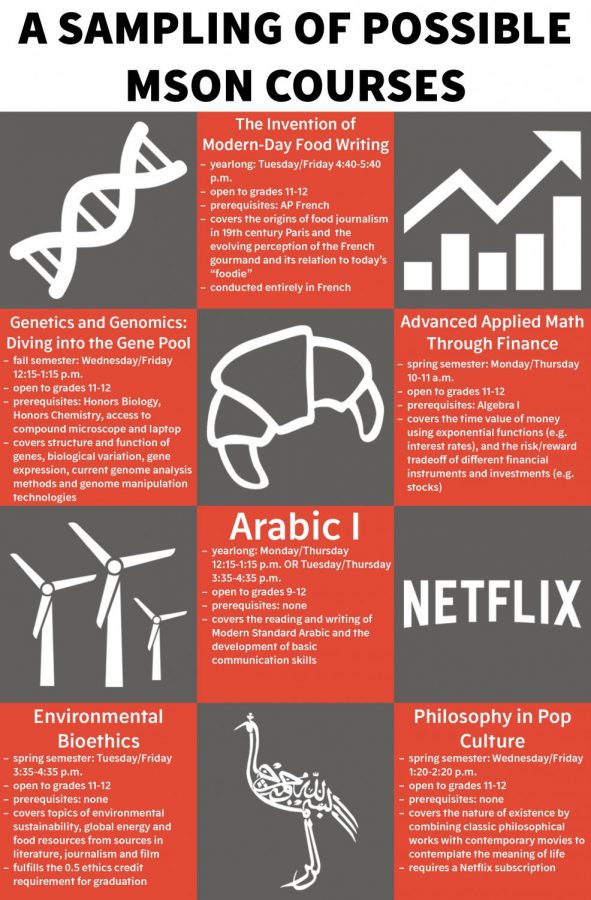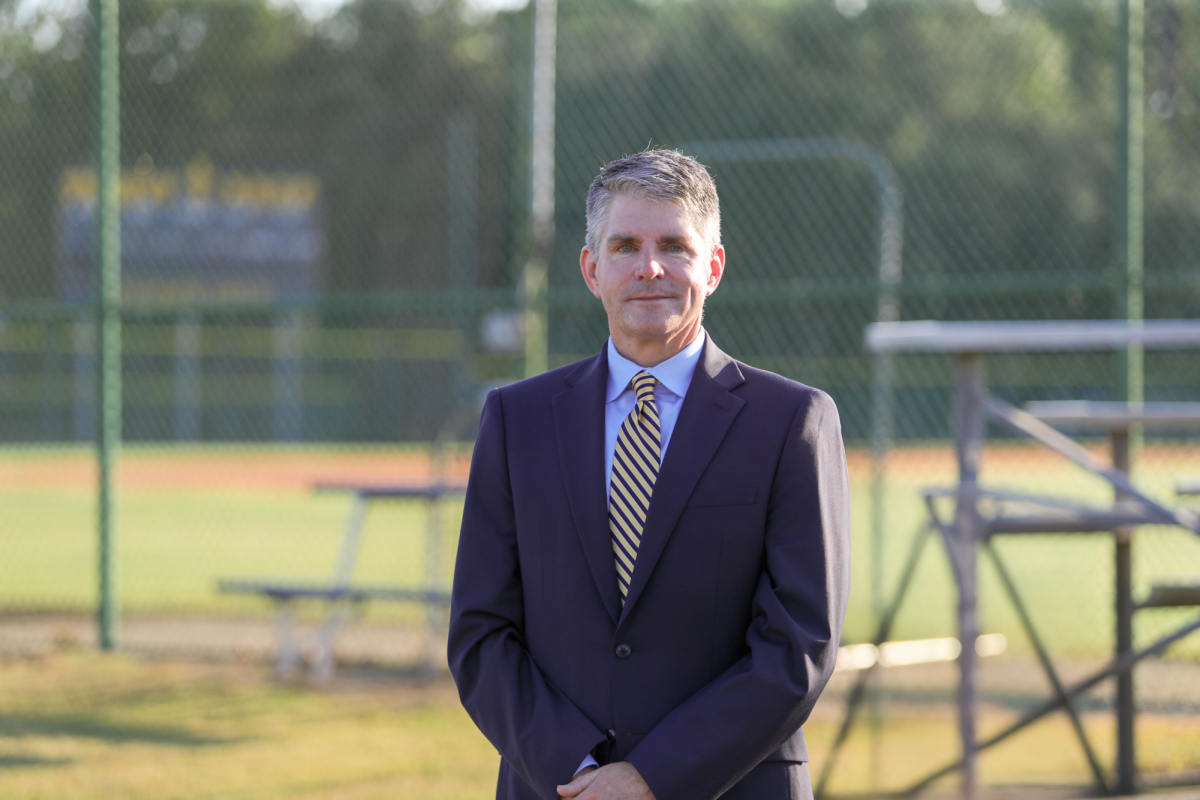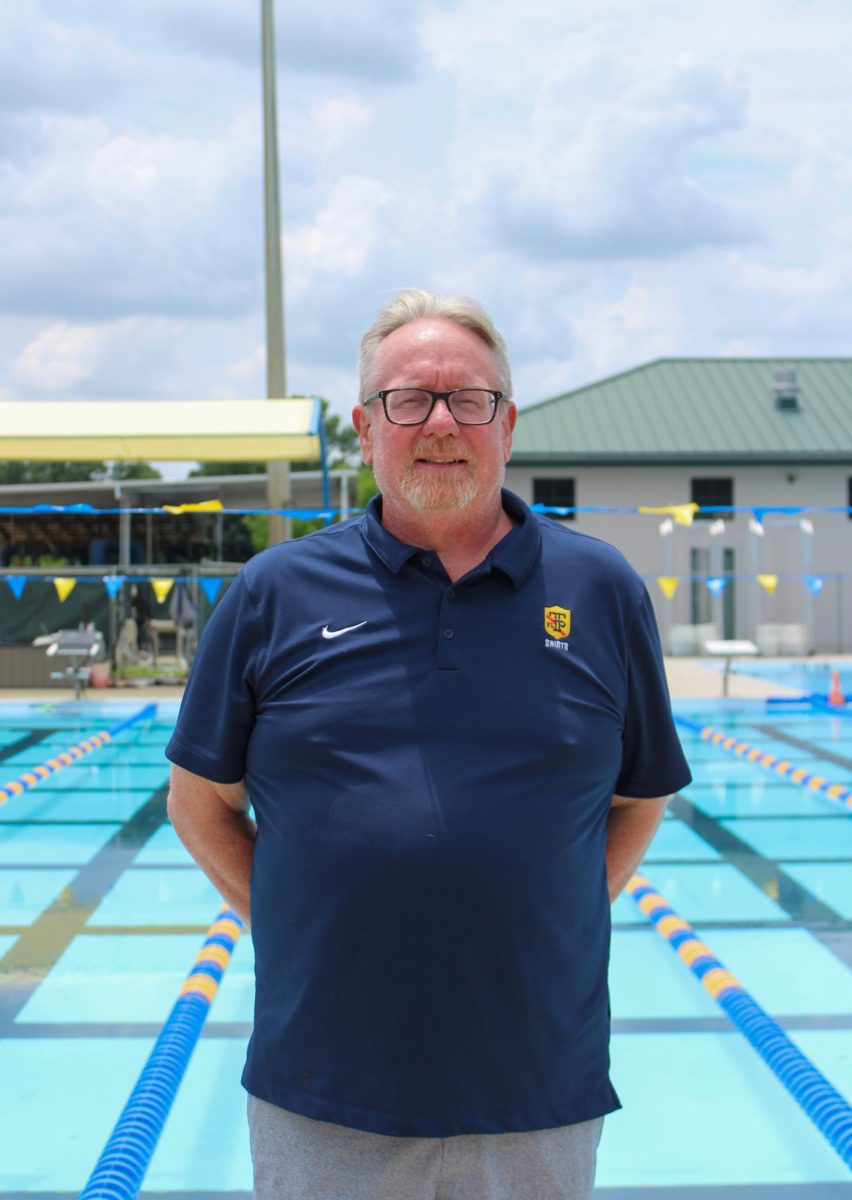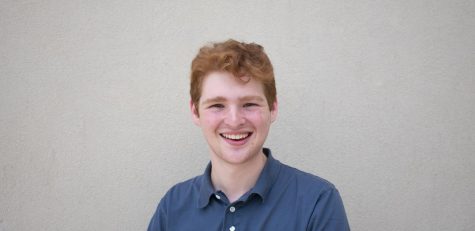As the COVID-19 pandemic sweeps across the nation, closing schools throughout the country, many schools have transitioned to remote learning. Trinity students are now getting their first tastes of online classes via Google Meets or Canvas Conferences. However, most students may not know that Trinity offers remote learning courses year-round: MSON classes.
Trinity, along with 25 other schools across America, is part of the Malone Schools Online Network, which offers 37 different and captivating classes in STEM, World Languages, and the Social Sciences, for students from across the country to take. MSON offers unique classes that are not typically available to a high school student. Courses such as Environmental Bioethics, Man’s Inhumanity to Man, Introduction to Organic Chemistry and more make up the unique course offering of the MSON curriculum, yet only 3.4% of students surveyed say that they have taken one.
Malone Schools Online Network (MSON) classes require no separate application, but prerequisites are given for certain classes in Trinity’s Course Catalog. Science teacher Carrie Lopez, who teaches the MSON course CSI Forensic Science, believes that Trinity’s MSON classes are a very beneficial and exciting opportunity for students.
“They are supposed to pique your interest, but they are also not supposed to be as demanding,” Lopez said. “They are supposed to be fun and interesting. If you’re interested in something and really want to explore it, then this is a great thing for you to do.”
MSON classes only meet twice a week, so they are designed to keep students interested and attentive. Director of Learning and Instruction Dr. Stephanie Dryden agrees that Trinity students should take advantage of the unique MSON curriculum.
“Approximately 20 Trinity students take these courses each year,” Dryden said. “MSON is a great supplement to [our] curriculum, [and] some kids really enjoy MSON.”
Despite the multitude of MSON classes available, many students either don’t know about the program, or choose to not take a class. According to a survey of Trinity students from 8th to 12th grade, nearly half did not know that the school offered remote learning classes year-round. Upper School Principal Patrick Mulloy said he wishes more students would take MSON courses, however, he understands that there are many reasons why students elect not to take them.
“Our public university system really focuses on the number of APs, so kids are going to take the APs at Trinity over the really interesting MSON course,” Mulloy said. “There are some very capable and bright Trinity students, but maybe they aren’t the biggest fans of remote learning.”
Lopez agrees that more students should take advantage of these opportunities, because these classes can provide a college-like experience that can’t be had in a regular Trinity class.
“The schedule is similar, and it also teaches you to collaborate with people who you don’t know,” Lopez said. “Every student should take an MSON class at least once.”
Mulloy said he believes that the school should do a better job at promoting these exciting classes to Trinity students, however the school only has a few spots for students to take, as the Malone Schools Network only sets aside a small amount of spots per school, depending on how many teachers teach MSON courses.
“We should promote MSON classes more,” Mulloy said. “We could better educate students and teachers on the MSON classes that are available.”
Since Trinity has converted to utilizing remote learning due to the COVID-19 pandemic, all students are now getting their first taste of what an MSON class is like. Although the transition has been difficult, Dryden and Mulloy hope that this experience will assure students that an online course is not as difficult as it seems.
“Maybe students will now know that remote learning is doable, and not this totally robotic thing,” Mulloy said. “Online learning where you still have teacher relationships is doable, and I hope students will be able to understand that now.”
Mulloy said that the school administration has also discussed a remote learning requirement in the future, and hopes that this taste of online classes will help encourage more students to take MSON courses, as only 8% of students intend on taking one.
“Maybe you take remote P.E. during the summer, or maybe you take an organic chemistry class via MSON,” Mulloy said. “Many big universities want students to have experience in a remote learning environment, so this could be a good experience for students.”
Mulloy and Dryden would also like to see more Trinity teachers teach MSON courses in the future, like Lopez and Upper School Dean of Students Kelly Aull, who used to teach an MSON Economics class. The more Trinity teachers that teach MSON classes, the more spots that open up to students, as currently there are only 2-3 spots per class for TPS students.
“After this semester, I think all of Trinity’s teachers would certainly be ready and much more prepared for the world of MSON than I was when I started,” Aull said. “I can absolutely see teachers wanting to continue using all of the new strategies and materials they’ve created for remote learning as well.”
As technology continues to grow more and more advanced and more intertwined in our learning experiences at Trinity, Dryden hopes that more teachers will take advantage of the unique opportunity to teach an MSON class.
“I would love to have more teachers offering MSON classes,” Dryden said. “It’s a question of finding the right fit and balancing the needs of our physical school community with MSON.”
Survey Data as of April 14th with 237 responses of TPS 8th-12th graders.














